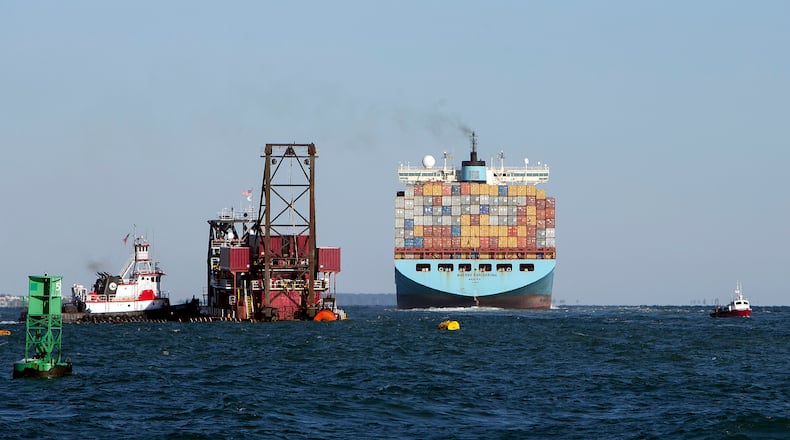With less than a week before the Nov. 8 election, PolitiFact Georgia is looking at how Democrat Hillary Clinton and Republican Donald Trump have fared on fact-checks about major issues in the race for president of the United States.
Today we look at their statements on trade.
Donald Trump on Monday, September 26th, 2016 in a Presidential debate”:
Says Hillary Clinton called the Trans-Pacific Partnership “the gold standard. You called it the gold standard of trade deals. You said it’s the finest deal you’ve ever seen.”
Clinton did use that language in 2012 when discussing TPP in Australia. And unlike her rebuttal, she didn’t couch it by saying she “hoped” it would be the gold standard. It’s worth noting that at this point the deal was still under negotiation and because that was done behind closed doors, there’s no way to know how much it changed. Before the final version came out, she advocated more of a wait-and-see approach.
We rated Trump's statement Mostly True.
Donald Trump on Monday, September 26th, 2016 in a Presidential debate”:
Says to Hillary Clinton, “You heard what I said about (the Trans-Pacific Partnership trade deal), and all of a sudden you were against it.”
There’s no evidence for cause and effect here, and the Trump campaign hasn’t provided any.
Clinton says her opposition is based solely on the terms of the proposed pact and her announcement to oppose it came two days after the TPP was finalized.
Even if political considerations drove her decision, most of the pressure on Clinton was within her own party, particularly from Bernie Sanders, as she saw her support among Democrats slipping.
Based on the available evidence.
We rated Trump's claim as False.
Hillary Clinton on Thursday, June 2nd, 2016 in a foreign policy speech:
“A trade war is something very different (than curbing new trade agreements). We went down that road in the 1930s. It made the Great Depression longer and more painful.”
Numerous experts we checked with said the Smoot-Hawley tariffs and the resulting trade war weren’t the only factor to worsen the Great Depression.
However, they agreed that the trade war undeniably had a negative impact.
Clinton took care not to overplay this argument in her speech.
We rated Clinton's statement True.
Hillary Clinton on Friday, July 29th, 2016 in a speech at Temple University:
Says Donald Trump “doesn’t make a thing in America.”
Many of Trump’s products are made overseas, but not all of them.
At the least, some of his suits and the campaign memorabilia he sells on his website are made in the United States.
We rated Clinton's statement False.
Donald Trump on Thursday, October 20th, 2016 in a rally in Delaware, Ohio:
“Ford is moving all of their small-car production to Mexico.”
That’s correct as far as it goes, but framing it that way ignores an important qualifier — that no U.S. jobs will be lost in the transition.
The company says that workers at the Ford plant in question will instead make SUVs and pickups.
We rated Trump's statement Mostly True.
Hillary Clinton on Thursday, August 11th, 2016 in an economic speech in Warren, Mich:
“I opposed the only multilateral trade deal that came before the Senate while I was there.”
Clinton did oppose one multilateral deal (CAFTA) and opposed another that could be characterized as a multilateral deal (the Trade Act of 2002).
However, focusing only on multilateral agreements, as Clinton does, obscures her overall voting record on trade pacts while serving in the Senate. When it came to bilateral agreements, Clinton cast votes to support five of them, and she supported — but never cast a formal vote for — an additional three.
The statement is partially accurate but leaves out important details.
We rated Clinton's statement Half True.
About the Author




